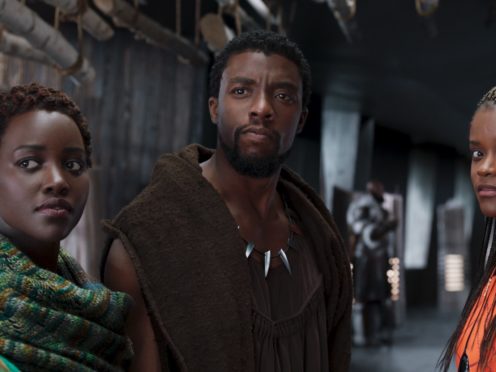This year’s best picture category features eight strong titles.
Here is what Press Association film critic Damon Smith thought of each film:
BLACK PANTHER (12A)
Black Panther, directed with swagger by Ryan Coogler, is the big cat’s whiskers.
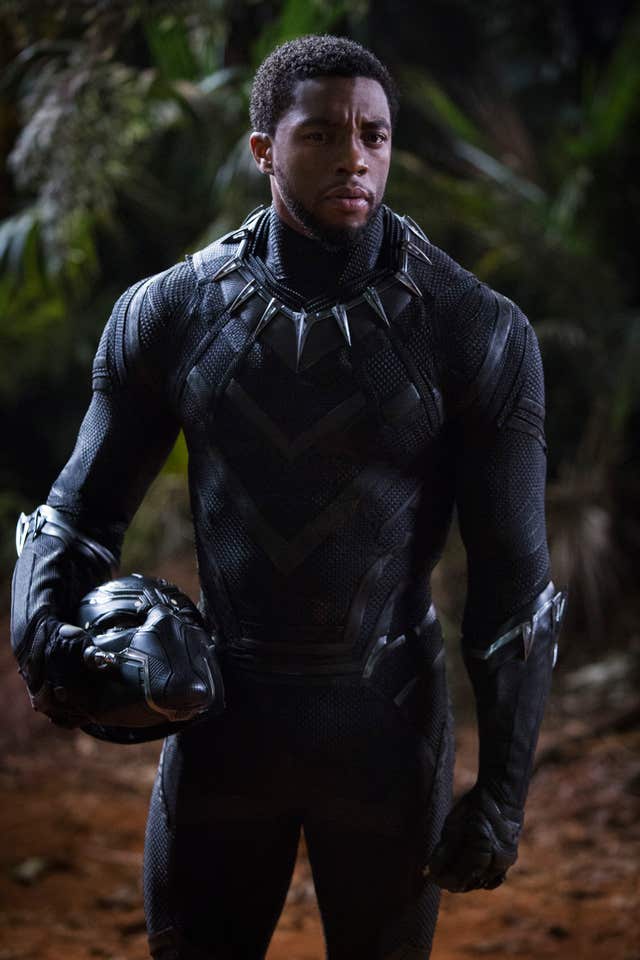
In some respects, this is identikit filmmaking: prodigal sons tormented by the loss of powerful fathers, computer-generated characters trading bone-crunching blows in mid-air, a throwaway cameo for comic book maven Stan Lee and additional scenes concealed in end credits.
Genetic flaws aside, Coogler’s slinky picture is barnstorming entertainment of the highest pedigree, which sinks its narrative claws into present-day racial tensions, gender inequality and western imperialism with relish.
Congratulations to the cast of Marvel Studios' #BlackPanther for winning the Screen Actors Guild Award for Outstanding Performance by a Cast in a Motion Picture! #SAGAwards pic.twitter.com/nPR7pwExvd
— Black Panther (@theblackpanther) January 28, 2019
Female characters are feisty, intelligent and refuse to sit demurely on the sidelines while engaging yet flawed male counterparts have all the fun.
As one proud warrior reminds her regal lover: the choice to rule as queen rests in her hands.
A predominantly black cast festooned with Oscar winners and nominees adds lustre to a lean script co-written by Joe Robert Cole, teasing out tender romance and bruising bloodline rivalries stained with tears of regret.
Rating: Four stars
Roma (15)
Filmed in lustrous black and white, predominantly in unbroken shots, Mexican writer-director Alfonso Cuaron’s valentine to politically volatile 1970s Mexico City is a masterclass in emotionally wrought storytelling and technical virtuosity (a riot sequence is jaw-dropping in its scale and effortless execution).
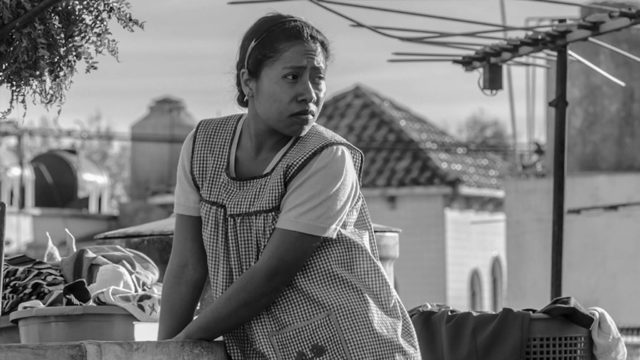
Yalitza Aparicio lights up every gorgeously crafted frame as maid Cleo, who works long hours in the home of businessman Antonio (Fernando Grediaga) and his wife Sofia (Marina de Tavira).
Cleo’s relationship with her martial arts-obsessed boyfriend (Jorge Antonio Guerrero) warps when he abandons her shortly after she falls pregnant.
Cuaron’s script skilfully draws parallels between fractured family units on opposite sides of the class divide, enriched with ravishing cinematography and immersive sound design.
Rating: Five stars
BLACKkKLANSMAN (15)
Released almost exactly one year after the Unite The Right rally in Charlottesville, BlacKkKlansman handcuffs racial divisions in present-day America to the outlandish true story of a black police detective who infiltrated the Ku Klux Klan in the 1970s.
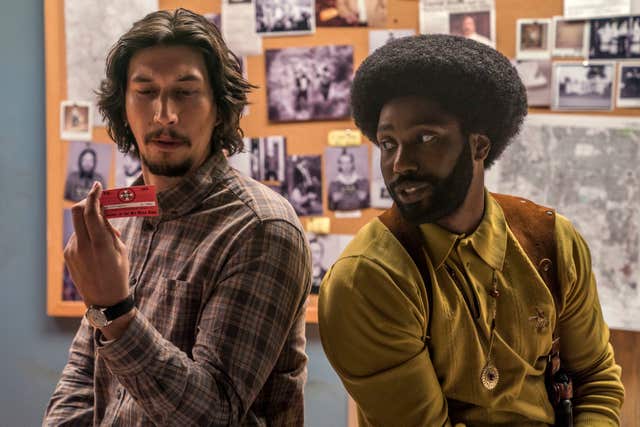
Director Spike Lee’s conscience-pricking satire on corruption and bigotry is based on a memoir by retired Colorado Springs officer Ron Stallworth and walks a tightrope between fact and stranger-than-fiction, seizing every opportunity to echo battle cries of the 2016 US presidential election.
Lee bookends his call to arms with sickening footage from Charlottesville of a car being driven at speed into counter-protesters, which left one woman dead and many others injured.
The director occasionally over-eggs his deliciously tart pudding, like his choice to juxtapose climactic scenes of characters chanting Black Power and White Power.
Sometimes, restraint lands the heaviest blows.
Rating: Four stars
BOHEMIAN RHAPSODY (12A)
Who wants to live forever?
Freddie Mercury does in Bryan Singer’s crowd-pleasing musical biopic, a greatest hits tribute blessed with a heartbreaking performance from Rami Malek as the charismatic frontman.
Bohemian Rhapsody covers the 15-year period between guitarist Brian May (Gwilym Lee) and drummer Roger Taylor (Ben Hardy) welcoming Freddie as lead singer of their band Smile, and Queen’s triumphant 20-minute set at Live Aid on July 13 1985.
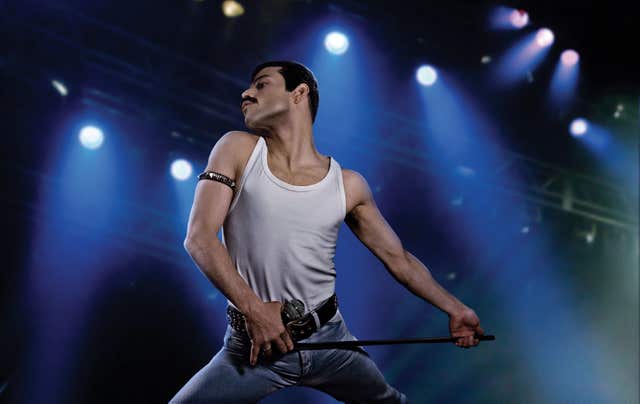
Singer’s film is bookended with an adrenaline-pumping recreation of the Wembley Stadium charity concert, where Queen stole the show with a barnstorming medley including Radio Ga Ga and We Are The Champions.
It’s a thunderbolts and lightning moment, electrified with slick digital effects and Malek’s gesture-perfect showboating.
Rating: Four stars
THE FAVOURITE (15)
Courtly intrigue pits two ambitious women against each other for the affections of an emotionally brittle queen in director Yorgos Lanthimos’s rollicking comedy of deliciously cruel intentions.
The Favourite is a brilliantly bawdy and boisterous battle of the rouged sexes, which tosses out profanities with devastating precision.
Words cut to the bone and an expertly polished script by Deborah Davis and Tony McNamara draws copious blood with its volleys of rapid-fire barbs.
Performances from the predominantly British cast are an embarrassment of riches that should be recognised with multiple nominations at the Academy Awards in February.
Rachel Weisz and Emma Stone savour every bile-drenched syllable of their feuding harpies but it is Olivia Colman who shines brightest as a petulant and volatile ruler stalked by tragedy.
Who will be @the_favourite? Olivia Colman, Emma Stone & Rachel Weisz star in a Yorgos Lanthimos film. In Select Theaters November 23. pic.twitter.com/rhZkVd6Wpf
— The Favourite (@the_favourite) September 4, 2018
God save the querulous queen and her corrupt court of diabolical, scheming admirers.
Rating: Five stars
GREEN BOOK (12A)
Inspired by a real-life friendship, Green Book is a life-affirming comedy drama which follows the tyre prints of Driving Miss Daisy to spark mutual appreciation between a chauffeur and his back-seat employer.
In the case of Peter Farrelly’s charming picture, the lead characters, an Italian-American bouncer (Viggo Mortensen) and a black pianist (Mahershala Ali), stand on opposite sides of a racial divide at a time when American motels and restaurants could segregate or exclude clientele based on the colour of their skin.
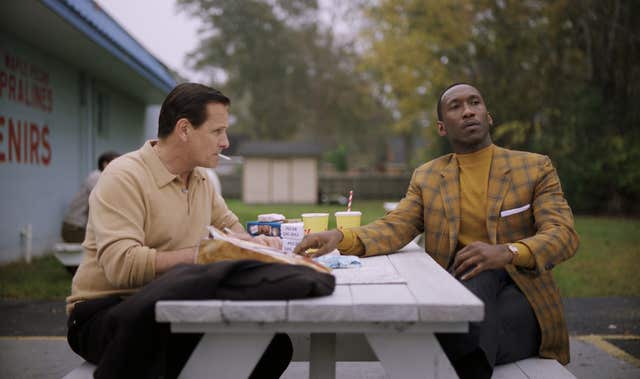
The script co-written by Farrelly, Nick Vallelonga and Brian Currie fine-tunes conflict between the two men during an eight-week pre-Christmas concert tour, which screeches from the bright lights of New York City to the Mississippi Delta.
Mortensen and Ali are a delightful double-act and Linda Cardellini offers compelling support as the bouncer’s proud spouse, who makes her embarrassed husband promise to “write me a letter every chance you get”.
Farrelly’s picture pens its own love letter to the endurance of the embattled human spirit that we savour with tears of contentment in our eyes.
Rating: Four stars
A STAR IS BORN (15)
A star is reborn in the third remake of the rags-to-riches fairy tale, which originally starred Janet Gaynor and Fredric March.
The 21st-century twinkling doesn’t emanate from pop chameleon turned award-winning actor Lady Gaga, who is undeniably luminous as a naive and vulnerable ingenue rocketing into the musical firmament.
No, the film’s retina-searing ball of light is Bradley Cooper as her grizzled mentor and lover.
The Philadelphia-born leading man nestles confidently into the director’s chair for his debut feature but he truly dazzles in front of the camera, drenched in the sweat and self-loathing of a booze-soaked showman who is staggering towards the precipice of oblivion.
#AStarIsBorn is now nominated for eight Academy Awards including Best Picture, Best Adapted Screenplay, Best Actor, Best Actress and Best Supporting Actor. Congrats to all! #OscarNoms #Oscars pic.twitter.com/gXgRKHO4TG
— A Star Is Born (@starisbornmovie) January 22, 2019
Screen chemistry between the two leads is molten and you can almost feel the heat rippling off the screen in breathlessly choreographed bedroom scenes.
Rating: Four stars
VICE (15)
Written and directed by Adam McKay, whose previous film The Big Short brilliantly dramatised the 2008 global financial crisis, Vice nervously prowls the corridors of power in Washington DC to satirise another true story of malicious meddling and unabashed self-interest.
“Or as true as it can be given that Dick Cheney is one of the most secretive leaders in history,” quips an opening title card, which establishes the irreverent tone of a breakneck tour through chapters of recent history including the Gulf War and the September 11 attacks.
For the opening hour, Vice is a briskly paced and engrossing portrait of ambition, electrified by an Oscar-worthy performance from Christian Bale, who gained 40 pounds to portray Cheney.
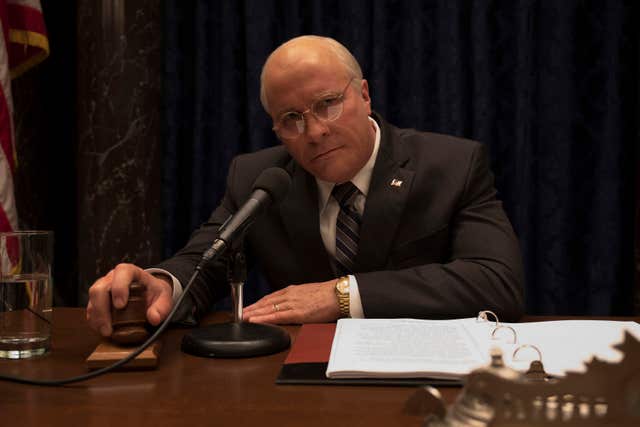
The Haverfordwest-born actor completes his startling transformation with more than 100 pieces of prosthetic make-up to replicate the jowls, jaw line and distinctive nose of his subject, who served as vice president to George W Bush between 2001 and 2009.
Once Cheney achieves his goals, McKay’s film leaches dramatic tension.
Rating: Three stars
All ratings are out of five.
